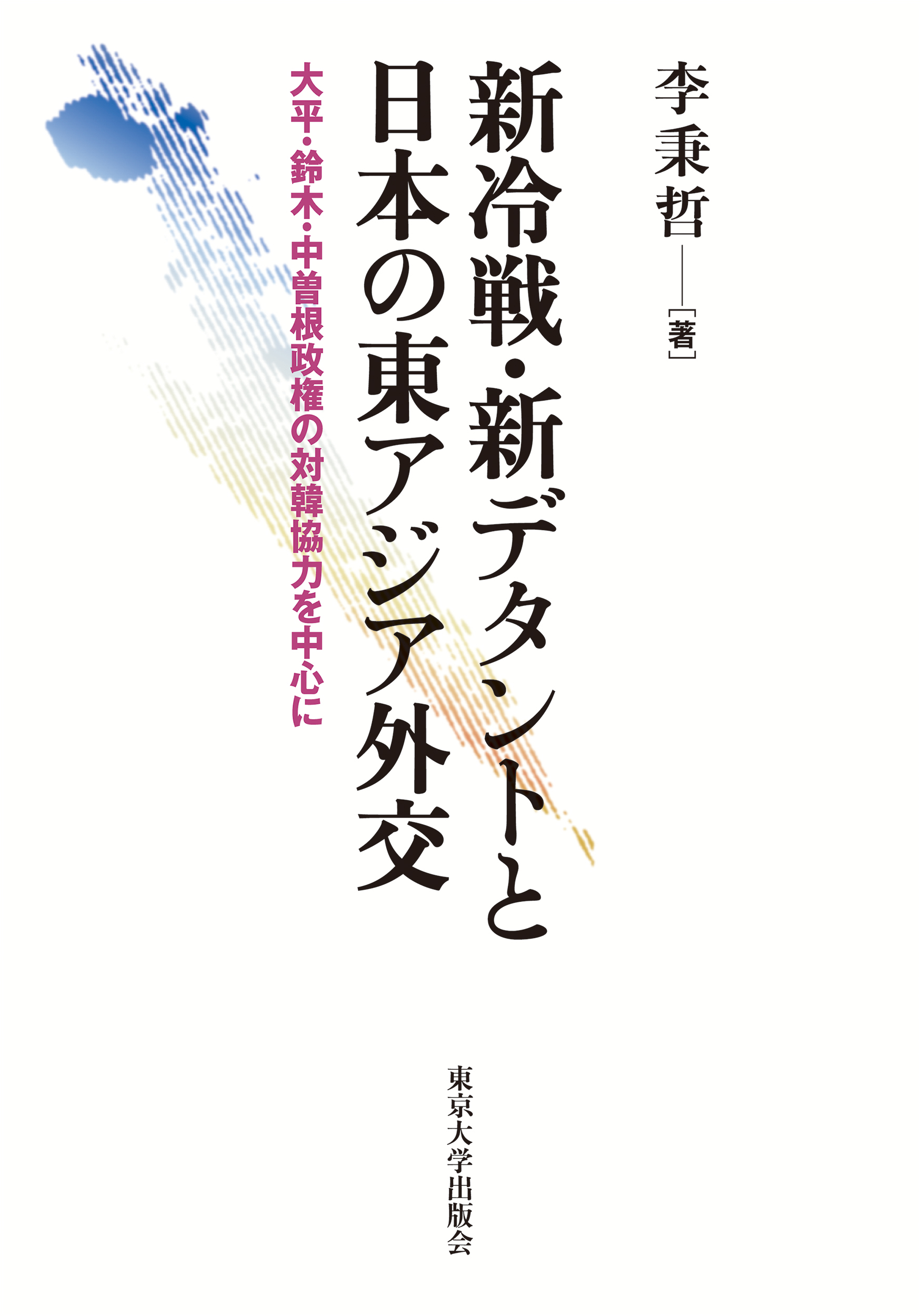
Title
Shin-Reisen, Shin- Detente to Higashi-Asia Gaikou (Japan’s East Asian Diplomacy during the "Second Cold War” and the Detente That Followed - The Policies of the Ohira, Suzuki, and Nakasone Cabinets (1979-1987))
Size
392 pages, A5 format
Language
Japanese
Released
February 21, 2023
ISBN
978-4-13-036286-3
Published by
University of Tokyo Press
Book Info
See Book Availability at Library
Japanese Page
The 1980s was marked by major changes in international affairs, with the collapse of Détente, the Second Cold War, and the declaration of the end of the long-standing Cold War. It was also a time when Japan, which had emerged as an economic superpower, began gaining attention for its position and global role. Therefore, it is imperative to deepen our understanding of Japanese diplomacy during this period, although owing to limitations of historical records, it is difficult to consider that research has progressed satisfactorily.
Japanese diplomacy around the 1980s has been discussed mainly in terms of policies and actions to deal with changes in the international order. Essentially, while Japanese diplomacy in the 1970s was characterized by its attempts to broaden its diplomatic horizons in response to easing tensions, in the 1980s, there was increasing attention on Japan's proactive efforts to support the Western camp, such as its decision to provide arms technology to the U.S. While these explanations may seem valid, it is necessary to conduct a comprehensive analysis of Japan's unique goals at the time. Furthermore, with regard to Japanese diplomacy in the 1980s, the focus is usually on the Nakasone administration, which followed a proactive diplomatic strategy. However, a comprehensive study that covers diplomatic policies developed before that is required to understand its foundation and background.
Accordingly, this book aims to analyze Japan's East Asian diplomacy between 1979 and 1987, from the Ohira and Suzuki administrations through the Nakasone administration. In particular, it discusses the goals of Japan's political and economic assistance to South Korea, which is an example of an initiative implemented by Japan at that time, as well as its background and history. It also attempts to examine the changes in international order and Japanese diplomacy since the 1970s, as well as the overall response of each administration.
The contents of this book reveal not only the dynamic relations among countries in the 1980s, but also aspects of Japanese diplomacy that have received limited attention until now. For instance, the Japanese government continued to express interest in peaceful coexistence between North and South Korea in the 1980s, indicating that the "member of the West" line of strengthening cooperation with the West did not completely replace Japan's diplomatic strategy. In addition, a continuity or interconnectedness can be observed between the diplomacy of the Ohira and Suzuki administrations and that of the Nakasone administration, with many previous studies emphasizing the differences. An example of this is the strategic goal of linking the economic and social stability of South Korea to the stability of the Korean Peninsula and, by extension, the entire East Asian region. In addition, Japan's diplomatic efforts in the 1980s—already directed toward important issues in the East Asian region since the 1990s such as strengthening of the Japan–U.S. alliance cooperation, dialogue between North and South Korea, and normalization of diplomatic relations between China and South Korea—cannot be overlooked.
Finally, the "friction" between Japan and South Korea over the methods of Japan–South Korea "cooperation" described in this book, as well as the conflicting multilateral interests of Japan, the U.S., China, and South Korea, demonstrate the importance of mutual understanding, dialogue, and constant coordination of interests among countries.
(Written by: LEE Byeongcheol / March 10, 2023)
Related Info
The 3rd UTokyo Jiritsu Award for Early Career Academics (The University of Tokyo 2022)
https://www.u-tokyo.ac.jp/ja/research/systems-data/n03_kankojosei.html



